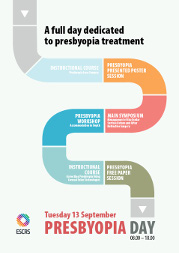Posters
Genetic markers of exfoliation syndrome in Georgian population
Poster Details
First Author: G. Chichua GEORGIA
Co Author(s): T. Aung C. Khor N. Kobakhidze
Abstract Details
Purpose:
The aim of this study was to determine the possible association of rs3825942 single nucleotide polymorphism (SNP) in LOXL1 gene and rs4926244 SNP in CACNA1A gene with exfoliation syndrome in Georgian population.
Setting:
1.Singapore National Eye Center, Singapore
2.Singapore Eye Research Institute, Singapore
3.Chichua Medical Center Mzera, Tbilisi, Georgia
Methods:
Eighty-three patients with XFS and 103 normal subjects were included in this study. After signing an informed consent patients underwent venous blood sampling. Genome-wide association study (GWAS) was conducted using Illumina OmniExpress microarray.
Results:
Principal component analysis of the Georgian XFS cases and controls showed the cases and controls to be well-matched genetically with minimal evidence of population stratification. Furthermore, the genome-wide data showed Georgian XFS case-control collection to have an ancestry distinct from the other Northern, Western, Eastern, and Southern European collections. In Georgian, the frequency of LOXL1 rs3825942 was 95.8% in exfoliation cases and 84% in controls, P = 0.0001, OR=4.65. The frequency of CACNA1A rs4926244 was 20% in XFS patients and 17% in controls, OR =1.19 (P = 0.4 in Georgia and P < 10-10 for global meta-analysis). The genetic effect sizes observed by us in Georgia were consistent with the data found in previously published studies for LOXL1 and CACNA1A.
Conclusions:
SNPs of the LOXL1 and CACNA1A genes are associated with XFS in the Georgian population. Our data are consistent with previously reported findings in European and Asian populations. Although, further studies are needed to provide more insight into pathogenesis of the disease.
Financial Disclosure:
NONE





